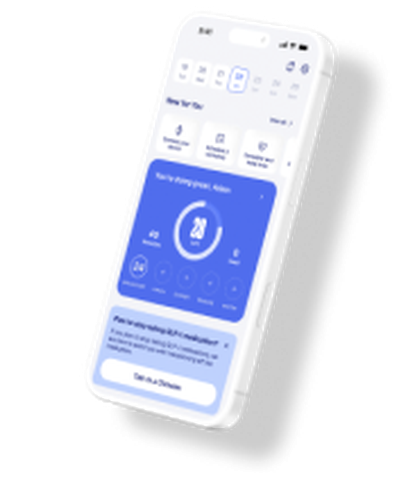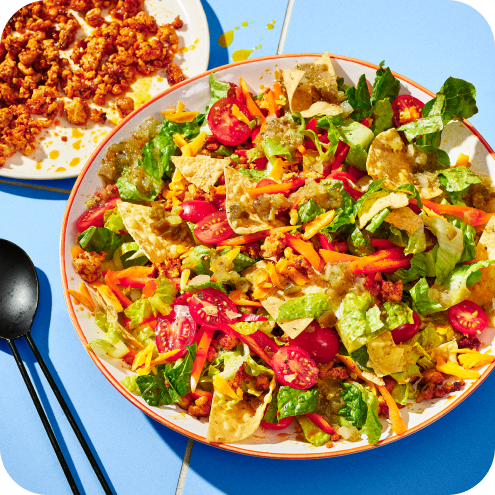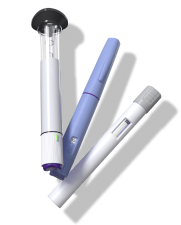
Powered by science.
Proven by people.
Watch it work.
Your one stop shop: expert guidance, Coaches who care, and smart nutrition – for results that can last.
Start today for as low as £6/mo.

Lesley
-2 st 7 lbs

Cheria
-5 st 10 lbs

Lori
-8 st 2 lbs

Palmer
-10 lbs

Madi
-2 st 5 lbs

Rachel
-9 lbs

Franca
-3 st 13 lbs

Maria
-3 st 13 lbs

Lesley
-2 st 7 lbs

Cheria
-5 st 10 lbs

Lori
-8 st 2 lbs

Palmer
-10 lbs

Madi
-2 st 5 lbs

Rachel
-9 lbs

Franca
-3 st 13 lbs

Maria
-3 st 13 lbs

Powered by science.
Proven by people.
Watch it work.
Your one stop shop: expert guidance, Coaches who care, and smart nutrition – for results that can last.
Start today for as low as £6/mo.
with Core or Core+
Build habits for weight loss with the #1 US doctor-recommended Points® programme – plus tools that make it easy.

GLP-1 medication?
Access our nutrition and fitness programme designed to maximise results.

Get more from your GLP-1 journey –
no matter where you get the prescription
GLP-1 weight-loss medications change your weight. Habits change everything else. We’ll help you build them:
Enter your meals to keep you on track with the nutrients that matter most for the GLP-1 journey, including protein, fruits, and vegetables.
Enter your meals to keep you on track with the nutrients that matter most for the GLP-1 journey, including protein, fruits, and vegetables.

Log your weight and activity to get a clearer picture of your journey.
Log your weight and activity to get a clearer picture of your journey.

Log injections – including the medication, dose, and site – as well as side effects, so you can better understand your body and what helps you feel your best.
Log injections – including the medication, dose, and site – as well as side effects, so you can better understand your body and what helps you feel your best.

Join a judgment-free community of people who are also on a GLP-1 through WW’s social platform, Connect.
Join a judgment-free community of people who are also on a GLP-1 through WW’s social platform, Connect.

Join virtual Workshops, and follow on-demand strength-training videos tailored to all fitness levels.
Join virtual Workshops, and follow on-demand strength-training videos tailored to all fitness levels.

Access recipes and articles that support life on a GLP-1, including a go-to GLP-1 foods list.
Access recipes and articles that support life on a GLP-1, including a go-to GLP-1 foods list.


Justine
-2 st 12 lbs

Jess
-1 st 1 lbs

Justine
-2 st 12 lbs

Jess
-1 st 1 lbs
Now it's your turn. Your journey is personal – but with us, you'll never walk it alone. Let's do this together.

Justine
-2 st 12 lbs

Jess
-1 st 1 lbs

Justine
-2 st 12 lbs

Jess
-1 st 1 lbs
Now it's your turn. Your journey is personal – but with us, you'll never walk it alone. Let's do this together.
science and built for you, it works

“Lasting weight health comes from evidence-based behaviour change. Whether someone is beginning with lifestyle changes or managing their weight under the care of a doctor, Weight Watchers delivers science-backed programmes that help people meet their goals, build healthier habits, and make progress they can sustain.”
-Dr. Kim Boyd
Weight Watchers Chief Medical Officer
Rachel lost 10lb in 10 weeks, Palmer lost 10lb in 9 weeks, Maria lost 4st in 93 weeks, Justine lost 2st 12lb in 34 weeks, Lesley lost 2st 7lb in 323 weeks, Lesley lost 2st 7lb in 323 weeks, Cheria lost 5st 5lb in 298 weeks, Lori lost 8st 2lb in 614 weeks, Jess lost 1st 1lb in 48 weeks and Franca lost 4st in 69 weeks. People following the Weight Watchers weight-loss programme can expect to lose 1-2lb per week. Results may vary person to person.